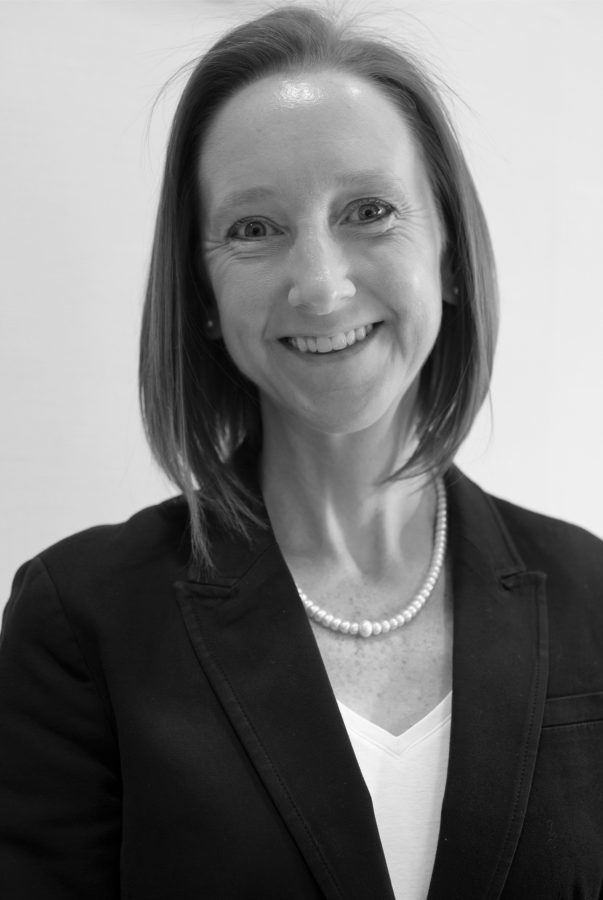Alumni Column: Embracing the Alternative
This is the time of year when some of you may be receiving bad news. Maybe you didn’t get the summer job, fellowship, or internship you really wanted, or you’ve been rejected from your top choice for graduate school. You feel disappointed and frustrated, wondering what else you should have done.
You’re not the only one experiencing disappointment this spring. NBA superstar Giannis Antekokounmpo was downtrodden the other night when the Miami Heat knocked his top-seeded Milwaukee Bucks out of the playoffs. But when asked whether he thought the Bucks’ season was a failure, he said, “It’s not a failure. It’s steps to success.”
I’m here to tell you that sometimes, failure is not a bad thing, and that your fallback option may in fact set you on the better path.
Let me give you some other examples. Colgate was not my first, or even my second, choice. After a different elite New England liberal arts college on which I had my heart set rejected my application and another put me on its waitlist, I visited Colgate for a second time in the spring of my senior year of high school. I remember thinking, “this place seems good enough.”
I could not have known then that Colgate — where I walked onto the cross-country and track teams, participated in student government, joined a sorority, learned a new language, wrote and defended an honors thesis, made lifelong friends and took my first steps on the road to becoming a federal judge — would be the one of the best things that ever happened to me.
During law school, more than anything I wanted to clerk for a federal judge. I applied to more than a dozen judges and did not get a single interview. After re-interviewing with law firms during my third year, I became a litigator at Hughes Hubbard & Reed LLP, a law firm in New York City that had represented Colgate for many years and whose head of litigation was a trusted advisor to the administration.
I couldn’t let go of my clerkship goal, though, and midway through my second year at Hughes Hubbard, I sent out another batch of applications. This time, I had much better luck. I was offered not one, but two clerkships — first, for a United States District Judge in Miami, and at the Seventh Circuit Court of Appeals in Chicago. I wish I had known, when I received all the rejection letters in law school, that with patience, time and persistence I would achieve my goal of obtaining a clerkship. Ultimately, I achieved more than I expected, having two full years of clerking for some of the best judges in the country, during which I refined my research and writing skills and worked on everything from death penalty appeals to civil rights litigation.
Ultimately, I set my sights on becoming a federal judge. Federal magistrate judges are selected by the federal district judges through a merit selection process, so after several more years in private practice at Hughes Hubbard (where I returned after clerking), I decided to submit my application. Although I was invited to interview with the selection committees, they did not choose me. I let myself sulk for a few days, and then regrouped and reassessed what else I could do to raise my profile, build the skills I would need as a magistrate judge and gain more federal court experience. When new positions opened, I reapplied, and in 2019, I was selected by the Board of Judges for the Southern District of New York to become a magistrate judge, which has been a greater privilege — and challenge — than I ever could have hoped.
Of course, my experiences are not unique. Countless other success stories were preceded by rejections and deviations from what was perceived as the first choice. A friend from Colgate was rejected by over 20 graduate programs before he enrolled at NYU, eventually earning his Ph.D. and becoming a prominent expert in his field. His roommate was rejected from so many jobs that he had enough letters to wallpaper his bedroom.
Thomas Edison once said that he never failed at anything, he just “found 10,000 ways that won’t work.” When you’re facing a rejection letter, let yourself wallow for a day — but only a day — then pick yourself up, reassess your options, and put one of them into action. A summer living at home, waiting tables or working in retail can equally build your communications and people-management skills. Internship opportunities and alumni networks at lower-profile graduate schools can be just as good or better than at the higher-profile schools. A job in a smaller city or a smaller company may give you more hands-on opportunities than in a larger one. And if all else fails, use this summer to get started on research for your senior thesis, learn a language, or volunteer in your community.
Good luck, be patient, be persistent, and try again.









